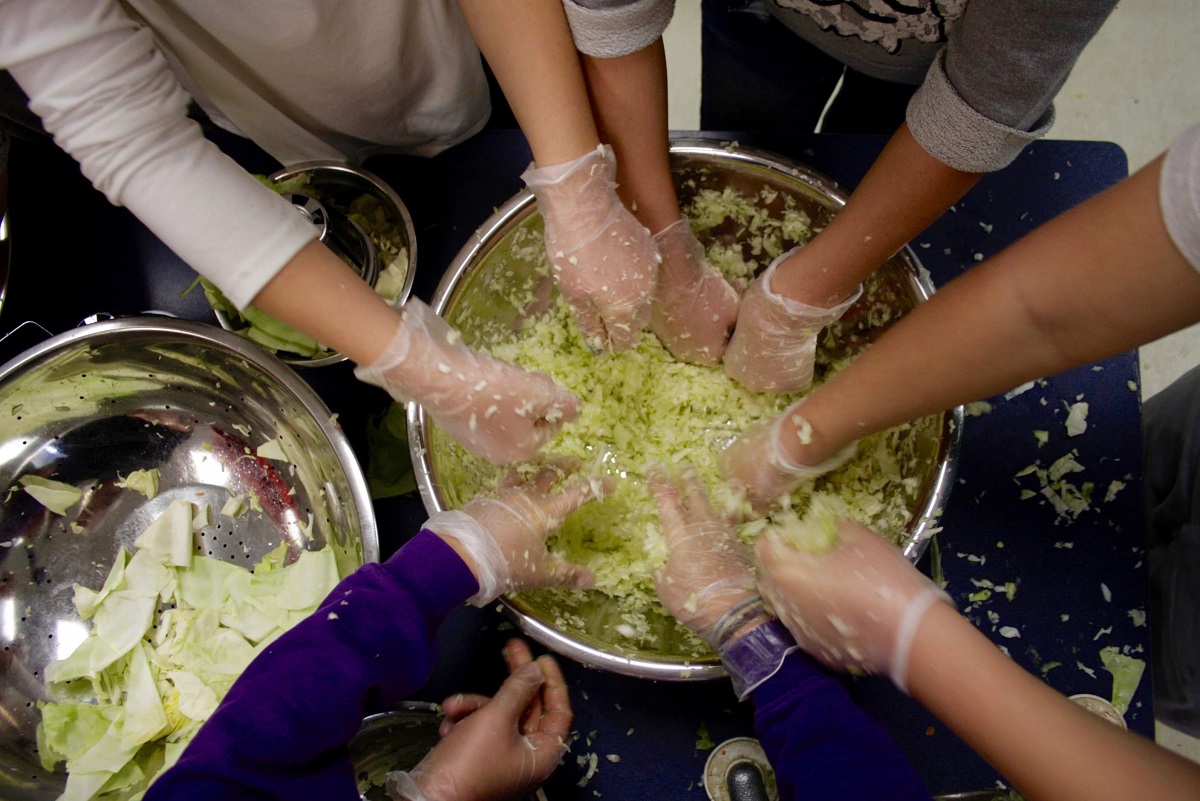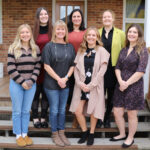FEEDING FAMILIES, REDUCING FOOD WASTE - Ten food recovery projects receive over $440,000 from Columbia Basin Trust
More people in the Columbia Basin will have better access to nutritious food and healthy meals as ten food recovery projects move forward to reduce food waste and help families meet their basic needs. These projects are receiving over $440,000 from Columbia Basin Trust.
“Communities told us that making essentials like nutritious food more affordable and accessible is a priority for improving well-being in our region,” said Aimee Ambrosone, Director, Delivery of Benefits at Columbia Basin Trust. “Food recovery is one way that we can meet the needs of children and families, while also helping to reduce food waste and loss.”
In addition to redirecting food, the projects may involve upgrading technology or infrastructure to improve or expand food recovery operations, and building public knowledge about food preparation, growing, preservation and storage, especially amongst children, youth and their families.
Here are a few of the projects:
Targeting Health and Resilience
From Castlegar and Nelson, all the way up the Slocan Valley, the West Kootenay Permaculture Co-op Association will be undertaking a multi-pronged project. This will include expanding its current activities by actively seeking more local food resources from places like farms and community gardens. This food will then be distributed to locals having a hard time accessing nutritious food. The group will also improve its own operations by updating its technology and infrastructure, plus will increase community knowledge about gathering, preparing, preserving and storing food.
“The Slocan Valley is home to many residents and families who have been identified as lowincome and poverty vulnerable,” said Claire Arrowsmith, Project Coordinator. “This initiative will help continue and increase our progress in developing a healthy and resilient community by connecting local growers and producers with consumers. We will help close the gap between available resources—such as good food and the know‐how to acquire and handle it—and those most in need.”
Everything Cherries
Two organizations are partnering on a project centred in the Creston Valley that extends well beyond to places like Cranbrook and Nelson. The Creston Valley Food Action Coalition (CVFAC) and Fields Forward Society are working together to take cherries not destined for retail and turn them into products like juice and fruit leather. Local community service organizations, like food banks and shelters, will then distribute these products to people in need.
Each year cherries in the Creston Valley are diverted from commercial shipping and the fresh market. “Many of these are of good quality but fail to meet cosmetic standards,” said Elizabeth Quinn, Strategic Planner, Fields Forward Society. “This project will enable youth and children to access fresh fruit products processed in the Creston Valley, reducing waste, adding value to fruit and enhancing food security.”
In addition to the cherry project, CVFAC will also be offering cooking classes to in-need families, providing them with both meals and long-term food skills. Most ingredients will be recovered from places like farms and grocery stores.
CVFACDirector Paris Marshall Smith says these activities will “increase the reach of our current recovery and distribution programs to neighbouring communities, strengthen and expand our partnerships with community groups and others, and increase knowledge and awareness about how we can better feed ourselves using local resources in a sustainable, healthy, secure and environmentally sound way.”
Nutritious and Fresh
“The food share program would be a great asset that we desperately need,” said one user of the Sparwood Food Bank. “It would help so many people, including myself and my child.”
The food bank’s project will give families making low incomes in Sparwood and the lower Elk Valley greater access to fresh, healthy food. The Sparwood Food Bank will partner with local grocery stores and restaurants to pick up good-quality, perishable food and distribute it to people in need. Food no longer fit for human consumption will be used by local farmers as animal feed or compost.
“It is very difficult for some families in our community to eat healthy, fresh foods on a budget, which in turn lowers overall health and quality of life and makes it harder to work,” said Program Coordinator Nicole Knauf. “Having access to free, fresh, healthy foods will help these individuals. This project will also reduce and bring awareness to food waste in the area.”
Another food bank user said, “Many families, including my own, will be grateful for this added contribution to an already amazing program!”
One of the objectives of the Trust’s Social Strategic Plan is to help people afford and meet basic needs like food. The Trust is also partnering with the BC Association of Farmers’ Markets to expand its Nutrition Coupon Program within the Basin.Learn about all the ways the Trust is supporting social well-being at ourtrust.org/social.
Columbia Basin Trust supports the ideas and efforts of the people in the Columbia Basin. To learn more about the Trust’s programs and initiatives, and how it helps deliver social, economic and environmental benefits to the Basin, visit ourtrust.org or call 1.800.505.8998.

























Comments